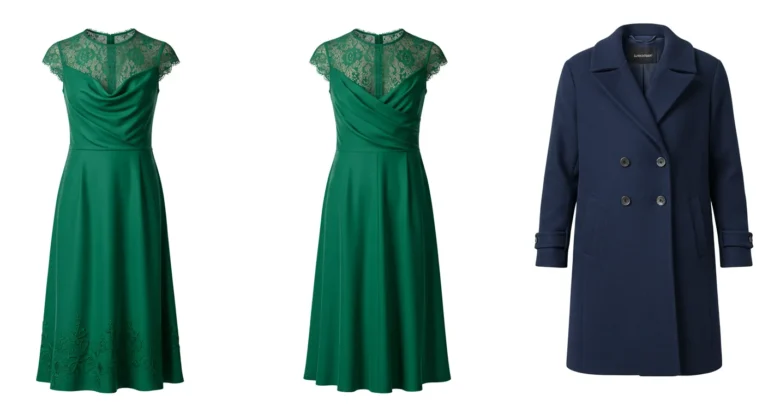Best Drugstore Moisturizers for Dry Skin 2025
Introduction
Dry skin is a common yet often misunderstood skin concern that can leave your skin feeling tight, flaky, and dull. In 2025, as skincare trends continue to evolve, the focus has shifted toward sustainable, effective products that cater to all skin types, especially dry skin. With a growing emphasis on clean beauty, natural ingredients, and dermatologically tested formulas, choosing the right moisturizer has never been more important.
In the past, dry skin was often treated with heavy, greasy creams that were not always suitable for every skin type. Today, advancements in skincare technology have led to a better understanding of skin needs, and moisturizers are now formulated to be lightweight, hydrating, and packed with beneficial ingredients. These modern moisturizers aim to restore moisture while also enhancing the skin’s ability to retain hydration for longer periods. As we move through 2025, the best drugstore moisturizers for dry skin are not just about hydration—they also focus on skin repair, barrier strengthening, and overall skin health.
Trends in skincare for 2025 emphasize sustainable beauty products that are not only effective but also kind to the planet. More consumers are looking for moisturizers that are free from harmful chemicals, parabens, and artificial fragrances. Brands are also offering products in eco-friendly packaging, with recyclable or biodegradable materials. Alongside sustainability, the focus is on multi-functional skincare, where a moisturizer not only hydrates but also addresses concerns like skin sensitivity, inflammation, and aging signs.

The rising demand for inclusivity in skincare also means that there are now more options for people with various skin concerns—whether it’s dry, oily, or combination skin. This shift reflects the growing awareness that skin needs vary from person to person, and a one-size-fits-all approach no longer works. Whether you have extremely dry skin or combination skin with patches of dryness, the best drugstore moisturizers of 2025 cater to these individual needs.
Understanding your skin and choosing the right moisturizer for dry skin is essential. Let’s dive deeper into how moisturizers work and which ones top the list for 2025.
How Moisturizers Work
Moisturizers are essential for maintaining skin hydration and ensuring that the skin remains smooth, soft, and elastic. Dry skin often results from a compromised skin barrier, which allows moisture to escape, leading to dehydration. The primary purpose of moisturizers is to replenish and lock in moisture, preventing the skin from becoming excessively dry or irritated.
The skin’s outermost layer, the stratum corneum, is responsible for maintaining hydration and protecting the skin from external elements. When this barrier is weakened, either by environmental factors like harsh weather or internal issues like dehydration, it can result in skin that feels tight, flaky, and rough. This is where moisturizers come in—they work by sealing in water and reinforcing the skin’s barrier, preventing further moisture loss.
Moisturizers typically contain a combination of three key components: humectants, emollients, and occlusives.
- Humectants like glycerin, hyaluronic acid, and propylene glycol attract moisture from the air or deeper layers of the skin to the surface, keeping the skin hydrated.
- Emollients, such as squalane, ceramides, and fatty acids, help to soften the skin by filling in the gaps between skin cells, creating a smooth, supple surface.
- Occlusives like petroleum jelly, dimethicone, and lanolin form a protective layer over the skin to lock in moisture and prevent it from evaporating.
In 2025, moisturizers are being formulated to do more than just hydrate. The best drugstore moisturizers now often contain ingredients that repair the skin’s barrier function. Ceramides and niacinamide, for example, have become popular ingredients in moisturizers for dry skin due to their ability to support the skin’s natural lipid barrier. Additionally, advancements in technology have led to the creation of micronized moisturizers, which penetrate the skin more effectively and deliver hydration where it’s most needed.
Moisturizers also come in different textures, from lightweight gels to richer creams. For people with dry skin, thicker, cream-based moisturizers tend to be more effective at locking in moisture and providing long-lasting hydration. However, if you have oily or combination skin, a gel-based moisturizer may be better suited to your needs, as it delivers hydration without leaving a greasy residue.
In the end, the effectiveness of a moisturizer depends on its ability to address the specific needs of your skin type and the ingredients it contains. Moisturizers are not just about hydration—they’re an investment in maintaining healthy, glowing skin for the long term.
Best Drugstore Moisturizers for Dry Skin
Choosing the best drugstore moisturizer for dry skin in 2025 involves understanding the unique needs of your skin, whether it’s intense hydration or barrier repair. Below are our top picks for the best drugstore moisturizers for dry skin:

CeraVe Moisturizing Cream
Features & Benefits:
CeraVe Moisturizing Cream is a dermatologist-recommended product that provides deep hydration with its rich, non-greasy formula. It contains essential ceramides, which help to restore the skin’s natural barrier. This product is great for those with sensitive skin, as it is fragrance-free and non-comedogenic, meaning it won’t clog pores.
Pros:
- Deep hydration for long-lasting moisture.
- Contains ceramides to restore the skin’s protective barrier.
- Fragrance-free and suitable for sensitive skin.
- Approved by dermatologists.
Cons:
- Can be a bit heavy for people with oily or combination skin.
- Some may find the thick consistency a bit difficult to spread.
Best suited for:
Sensitive skin, those looking for an all-day moisturizer that deeply hydrates without irritation.
Neutrogena Hydro Boost Gel-Cream
Features & Benefits:
This lightweight gel-cream is packed with hyaluronic acid, which helps the skin retain moisture while keeping it feeling refreshed and non-greasy. Its water-based formula makes it a great choice for oily and combination skin, providing hydration without clogging pores.
Pros:
- Lightweight and absorbs quickly.
- Non-greasy, making it ideal for oily skin.
- Helps to boost skin’s moisture levels without feeling heavy.
- Dermatologist recommended.
Cons:
- May not provide enough moisture for those with extremely dry skin.
- Fragrance, though mild, could be irritating to very sensitive individuals.
Best suited for:
Oily and combination skin types, people looking for a light moisturizer that still hydrates effectively.
La Roche-Posay Toleriane Double Repair Moisturizer
Features & Benefits:
La Roche-Posay’s Toleriane Double Repair Moisturizer is designed for sensitive and irritated skin. It contains niacinamide and ceramides, which help repair the skin barrier while providing hydration. The addition of prebiotic thermal water soothes the skin and supports a healthy microbiome.
Pros:
- Soothes and repairs irritated skin.
- Great for those with eczema-prone skin.
- Hydrates and strengthens the skin barrier.
- Non-comedogenic and fragrance-free.
Cons:
- Slightly pricier than other drugstore options.
- May feel a bit heavy for those with oily skin.
Best suited for:
Sensitive skin, irritated skin, and those with conditions like eczema.
Vanicream Moisturizing Skin Cream
Features & Benefits:
Vanicream is known for its hypoallergenic properties, making it ideal for those with sensitive or eczema-prone skin. Free from harsh chemicals, fragrances, and dyes, this cream is perfect for restoring moisture without causing irritation.
Pros:
- Free from harsh chemicals, fragrance-free.
- Suitable for sensitive and eczema-prone skin.
- Rich, moisturizing formula that is effective for dry skin.
Cons:
- The thick texture may not be suitable for those who prefer lightweight moisturizers.
- Requires more time to fully absorb into the skin.
Best suited for:
Sensitive, eczema-prone skin, those looking for a gentle but effective moisturizer.
How to Choose the Perfect Moisturizer for Your Skin
Choosing the right moisturizer for your skin can make a world of difference, especially when it comes to combating dry skin. The market is filled with a wide array of products, and with so many options, it’s essential to focus on the specific needs of your skin. Here’s a guide to help you determine which type of moisturizer is best suited for your skin:
Oily Skin
If you have oily skin, it might seem counterintuitive to use a moisturizer, but oily skin needs hydration too. The key is to avoid heavy, greasy creams that can exacerbate shine or clog pores. Instead, opt for lightweight, gel-based formulas that provide moisture without weighing the skin down. These moisturizers often contain ingredients like hyaluronic acid and glycerin, which hydrate the skin while maintaining its natural balance.
Best Moisturizer Type: Gel-based, oil-free, non-comedogenic.
Example: Neutrogena Hydro Boost Gel-Cream is an excellent choice for oily skin, as it hydrates without adding excess shine.
Sensitive Skin
Sensitive skin can react negatively to certain ingredients, especially fragrances or harsh chemicals. For individuals with sensitive skin, it’s important to choose a moisturizer that is hypoallergenic, fragrance-free, and free from any irritants that could trigger an allergic reaction or cause redness. Look for moisturizers that contain soothing ingredients like ceramides, niacinamide, and squalane, which can help restore the skin’s protective barrier and calm inflammation.
Best Moisturizer Type: Hypoallergenic, fragrance-free, soothing.
Example: CeraVe Moisturizing Cream and La Roche-Posay Toleriane Double Repair are both excellent choices for sensitive skin.
Combination Skin
If you have combination skin, you may notice that your skin is oily in some areas (like the T-zone) and dry or normal in others. The best moisturizers for combination skin should provide hydration without making the oily areas greasy or exacerbating dryness in other areas. Look for balancing formulas that are non-comedogenic (won’t clog pores) and contain hydrating ingredients like hyaluronic acid and glycerin.
Best Moisturizer Type: Lightweight, non-comedogenic, hydrating.
Example: La Roche-Posay Toleriane Double Repair Moisturizer is great for combination skin as it hydrates without making the T-zone oily.
Extremely Dry Skin
If you have extremely dry skin, a richer, thicker moisturizer will be necessary to lock in moisture and provide lasting hydration. Look for moisturizers that contain occlusive ingredients like petrolatum, dimethicone, or lanolin, which form a barrier over the skin to lock in moisture and prevent water loss. These heavier formulas help to restore moisture levels that are often depleted in very dry skin.
Best Moisturizer Type: Rich, occlusive, hydrating.
Example: Vanicream Moisturizing Skin Cream offers deep moisture and is perfect for those with dry, eczema-prone skin.
Moisturizer Application Tips for Maximum Effectiveness
To get the most out of your moisturizer and achieve optimal hydration, the way you apply it is just as important as the product itself. Here are some essential tips to ensure you’re maximizing the benefits of your moisturizer:
When to Apply Moisturizer for Best Results
The best time to apply your moisturizer is right after you cleanse your skin. After washing your face, your skin is damp, which makes it the perfect time to apply a moisturizer. Damp skin helps lock in moisture and ensures better absorption. If you wait too long after washing, your skin will begin to dry out, and your moisturizer won’t be as effective.
Layering Techniques
In your skincare routine, moisturizers should always be applied after serums, oils, or other treatments. Serums are typically more concentrated and lightweight, so they need to be absorbed into the skin first. After applying a serum, lock in the hydration by following up with a moisturizer. The moisturizer will seal in the active ingredients of the serum and provide an additional layer of protection and moisture.
Application Tip: Apply your serum first, then use a moisturizer to lock in the benefits.
How Much Moisturizer to Use Based on Skin Type
While the amount of moisturizer to apply depends on your skin type, a good rule of thumb is to use a pea-sized amount for your face. If you have dry skin, you may need to apply more to ensure full coverage and hydration. For oily or combination skin, a smaller amount will suffice, as you don’t want to overhydrate or cause excess oil production.
Pro Tip: Don’t forget your neck! Apply the same amount of moisturizer to your neck and décolletage as you do to your face, as these areas are also prone to dryness.
Proper application is key to getting the most from your moisturizer. Follow these tips to ensure your skin stays hydrated and healthy all day long.
Key Ingredients to Look
The ingredients in a moisturizer play a vital role in its ability to hydrate and nourish your skin. In 2025, there are several key ingredients that stand out for their ability to address dry skin and improve overall skin health. Here’s what to look for:
Peptides
Peptides are short chains of amino acids that act as building blocks for proteins in the skin, such as collagen and elastin. As we age, the production of collagen and elastin slows down, leading to wrinkles and sagging skin. Peptides help stimulate the production of these proteins, making them essential for skin regeneration. They also help improve the skin’s moisture barrier, which is crucial for keeping dry skin hydrated.
Hyaluronic Acid
Hyaluronic acid is a powerhouse when it comes to hydration. This humectant is able to draw moisture from the environment into the skin, providing instant hydration and improving the skin’s moisture retention. It’s perfect for dry skin because it can hold 1000 times its weight in water, ensuring that your skin stays hydrated throughout the day.
Ceramides
Ceramides are lipids (fats) that form the natural barrier of the skin, helping to lock in moisture and protect the skin from environmental damage. In 2025, ceramides have become a staple in moisturizers, especially for dry skin, as they repair and strengthen the skin barrier. When your skin barrier is healthy, it retains moisture better, leading to more hydrated and smoother skin.
Squalane
Squalane is a lightweight, plant-derived oil that hydrates without clogging pores. It’s an excellent ingredient for those with dry skin because it helps to replenish lost moisture, providing a dewy glow without being greasy. Squalane also has anti-aging properties and can help reduce the appearance of fine lines and wrinkles.
These key ingredients are crucial for ensuring your moisturizer is as effective as possible. Look for products that contain one or more of these ingredients to give your skin the hydration it needs.
Pros and Cons of Each Moisturizer
CeraVe Moisturizing Cream
Pros:
- Provides deep hydration and strengthens the skin barrier.
- Suitable for sensitive skin, fragrance-free.
- Dermatologist-recommended, reliable and effective.
Cons:
- May feel too heavy for people with oily skin.
- Thick consistency can make it hard to apply evenly.
Best for:
Sensitive skin, dry skin, and those seeking long-lasting hydration.
Neutrogena Hydro Boost Gel-Cream
Pros:
- Lightweight and absorbs quickly.
- Non-comedogenic, ideal for oily skin.
- Contains hyaluronic acid for maximum hydration.
Cons:
- Might not provide enough moisture for extremely dry skin.
- Contains fragrance, which could irritate sensitive individuals.
Best for:
Oily and combination skin, people needing a lighter moisturizer
La Roche-Posay Toleriane Double Repair Moisturizer
Pros:
- Repairs and soothes irritated skin.
- Contains niacinamide and ceramides for skin barrier repair.
- Fragrance-free, suitable for sensitive skin.
Cons:
- Slightly more expensive than other drugstore options.
- May feel too thick for those with oily skin.
Best for:
Sensitive, irritated skin, eczema-prone skin.
Vanicream Moisturizing Skin Cream
Pros:
- Free from harsh chemicals, fragrance-free.
- Perfect for eczema-prone skin and people with allergies.
- Deeply hydrating without irritation.
Cons:
- Thick texture may be too heavy for some.
- Takes longer to absorb.
Best for:
Sensitive, eczema-prone skin, people looking for gentle hydration.
Common Myths about Moisturizers for Dry Skin
When it comes to skincare, especially moisturizers, there are several myths that can confuse consumers and lead to ineffective practices. It’s important to separate fact from fiction, so you can take the best care of your dry skin in 2025. Let’s bust some common myths surrounding moisturizers for dry skin:
All Moisturizers Are the Same
One of the most persistent myths in skincare is that all moisturizers provide the same benefit, but the truth is, moisturizers vary greatly depending on their ingredients and formulations. Some moisturizers are designed to be lightweight and non-greasy, while others are richer and more occlusive, meant to lock in moisture for extremely dry skin. Choosing the wrong type of moisturizer can lead to issues like clogged pores, irritation, or insufficient hydration.
Fact: Not all moisturizers are the same. It’s essential to choose the right product based on your skin type and needs.
You Only Need a Moisturizer in Winter
It’s a common misconception that moisturizers are only necessary during the winter months, when the cold air can strip your skin of its natural moisture. While it’s true that colder weather can exacerbate dryness, dry skin can occur in any season—especially if you live in areas with low humidity, spend time in air-conditioned environments, or use harsh skincare products.
Fact: Dry skin can occur year-round, and moisturizing should be a daily habit, no matter the season. During summer, it’s especially important to use lightweight moisturizers to combat the drying effects of sun exposure and air conditioning.
Oily Skin Doesn’t Need Moisturizer
Many people with oily skin believe that using moisturizer will make their skin even more greasy. However, this is a misconception. Oily skin still requires hydration. If you skip moisturizer, your skin may overproduce oil to compensate for the lack of moisture, which can lead to breakouts and other skin concerns.
Fact: Oily skin needs moisturizer too, but the key is choosing the right lightweight, non-comedogenic product that hydrates without clogging pores. Opt for gel-based moisturizers or oil-free options that won’t add excess shine.
FAQ
To make sure you have all the information you need to select the perfect moisturizer for your dry skin, here are answers to some frequently asked questions:
What’s the best way to hydrate dry skin without irritation?
To hydrate dry skin effectively, focus on using a gentle, fragrance-free moisturizer that contains soothing ingredients like ceramides and hyaluronic acid. It’s also helpful to apply your moisturizer while your skin is still damp to lock in moisture. If your skin is easily irritated, avoid products with alcohol, fragrances, or harsh exfoliants.
What’s the best moisturizer for dry skin and acne-prone skin?
If you have both dry and acne-prone skin, it’s essential to find a non-comedogenic moisturizer that hydrates without clogging pores. Look for oil-free or gel-based moisturizers like Neutrogena Hydro Boost Gel-Cream, which offer lightweight hydration while keeping acne flare-ups at bay. Additionally, look for products containing niacinamide or salicylic acid for additional acne-fighting benefits.
Should I switch moisturizers based on the season?
Yes, your skin’s hydration needs can change with the seasons. During the colder months, opt for thicker, more occlusive moisturizers to prevent moisture loss from dry, cold air. In warmer months, switch to lightweight, oil-free moisturizers that provide hydration without feeling greasy. However, if you have consistently dry skin, it’s essential to hydrate year-round with a suitable moisturizer for your skin type.
How can I tell if a moisturizer is right for me?
To determine if a moisturizer is right for your skin, consider your skin’s response after using it for a few days. Does it feel hydrated and comfortable, or does it leave your skin greasy or irritated? Make sure to choose a moisturizer that addresses your specific needs, such as oil-free for oily skin or rich and occlusive for dry skin. Pay attention to key ingredients like ceramides, hyaluronic acid, and peptides that will enhance your skin’s hydration and barrier.
Conclusion
In 2025, skincare continues to evolve with the focus on creating effective, sustainable, and skin-friendly products. When it comes to moisturizing for dry skin, the right product can make a significant difference in maintaining healthy, hydrated skin. Whether you prefer a rich, thick cream or a lightweight gel, understanding your skin’s unique needs is essential for selecting the best moisturizer.
If you have dry skin, consider incorporating products that contain hyaluronic acid, ceramides, and squalane to provide long-lasting hydration. Don’t be afraid to experiment with different textures and formulations based on your skin type, and always apply moisturizer on damp skin for the best results.
The moisturizers highlighted in this guide—such as CeraVe Moisturizing Cream, Neutrogena Hydro Boost Gel-Cream, and Vanicream Moisturizing Skin Cream—are all excellent choices that cater to different skin types and concerns. Remember to look for products that fit your skin’s needs, whether that’s lightweight, fragrance-free hydration for sensitive skin, or thick, occlusive formulas for extremely dry skin.
For optimal hydration and skin health, apply your moisturizer regularly, follow good skincare practices, and choose the right products that will help you maintain glowing, hydrated skin throughout the year.







